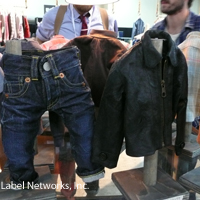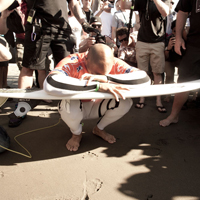
One of the strongest growing movements in music in the last few years which is also having a serious influence on fashion, electronics, and other lifestyle choices, is what we call the revival of hip-hop rap also known as “hipster rap revival.” Coined possibly by the duo out of New Orleans, The Knux, and their nerdy version of pop-hip-hop synth, this version of hip-hop is clearly owned by a new generation that simply never really related to the old, stereo-typical versions of the subculture of hip-hop.
To provide some perspective on how things got re-started, it’s important to take a quick look at the past. It can be said that music downloading accelerated the descent of major music labels as we know it and suddenly, no one was taking a risk. Jay-Z retired (although now he’s back again once realizing that touring is the only way to make money), and 50 Cent became the unfortunate prototype of a blinged-out, over-saturated genre. Sure there were break-outs during the last decade of malaise such as Kanye or Ghostface who were shining stars in a murky time-period but a new generation has come into its own combining their skinny-jeaned asymmetry of indie rock with electronica, rap and funk into a new genre, a.k.a. “Hipster Rap.” This generation of hipster rappers is a tolerant post 9/11 generation, street savvy, complex, Obama-loving New Order.
This new movement has contributed, if not relaunched the whole mixed tape scene and DIY music. Home recording, for example, has taken to new heights increasing from a $40 million industry in 2001 to an estimated $300 million in 2007, and even higher predictions by the end of this year. MySpace Music has 5 million pages. With the ease of internet transmission, emergence of blogs like Nah Right, the Rap Up, its set the stage for a new sound, new look, and new aesthetic that’s snowballing, including fashion from borrowed eras.
Typical of styles sourced from Soulseek folders and old-school Flickr albums this new style is a mix of old recontextualized (because they did not live through the original version and so naturally put their own twist on the borrowed style) with indie and part rave. For example, the Cool Kids out of Chicago and their 80’s fashion sense mixed with their unique party raps sound. JDavey and their mix of Prince, Joy Division, Missing Persons, and soul, and corresponding shaved sides of their heads, vests, scarves, and star earrings. There’s electro-rap and the Baltimore club scene -an American Apparel-wearing crossover of backpackers X headbands which unite as part of a Spank Rock wannabe music scene.
Other key elements from a fashion sensibility include vests, ducky shoes (the picture in the middle is a recent collection from Jonathan Kelsey for Mulberry), high-waisted double denim waistbands, metallic tights, Sheila E. style jumper dresses for girls, nerdy rappers with skinny ties, Converse sneaks, and Fedoras for guys.
This new generation is a younger-sibling, 5th generation of rap that’s filling the vortex left when hip-hop started its decline. And it’s got more energy than most people may realize. Even CMJ Music Festival in New York City last month saw resurgence with their Global Hip-Hop night and French Hip-Hop Night as part of a larger cultural program called I Kniffe NY.
On-going tours like Rock the Bells, which just finished up in North America and is continuing onto Europe, represents this reprisal of this new form in tour format, bringing older bands out such as Wu-Tang with duos like the Cool Kids, dance-rapper Kid Sister, Kidz in the Hall, and Jay Electronica among others.
Overall, when the deconstruction of a musical subculture turns into something more powerful than its parents in its new form, it represents a notable new movement that can cross many boundaries other than the one it actually started in. Such is hipster rap revival–from a musical, fashion, and technological perspective.


